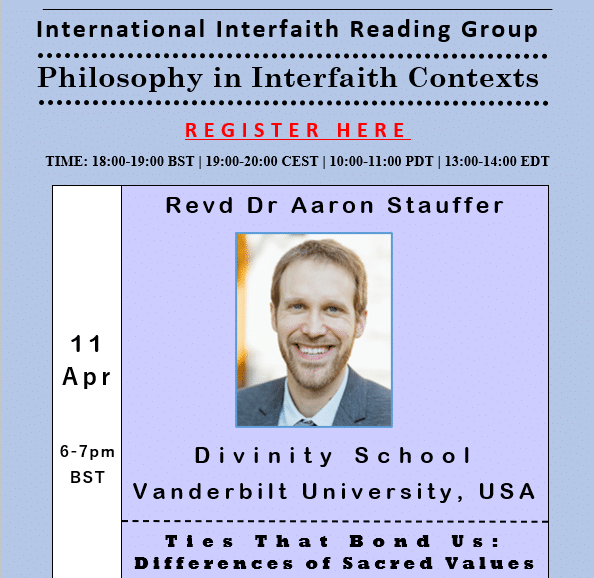The Ties That Bond Us: Differences of Sacred Values in Interfaith Organizing

Broad-based community organizing (BBCO) is perhaps the most widely used form of political participation supported by U.S American religious institutions today. As organizing groups become more religiously diverse, however, so do the conceptions of sacred value that ground organizing in the first place. In today’s political climate in the U.S. what we hold most dear, those sacred values such as human life, a land, or a natural resource may seem to only further entrench us in our enclaves and threaten the solidarity of any constituency. Rather than focusing on the potential for solidarity in sacred values, organizing networks have marginalized them, doubling down on a strategy of building group solidarity through common issues rather than diverse religious ethics. This lecture explores a different strategy. Dr. Stauffer argues that people organize to protect and fight for what they hold most dear and by centering sacred values organizing networks can build deeper solidarity. Differences of sacred values, rather than aspects of political and religious life to be eschewed, offer a way to build deeper relational power for the work of religious, political, and economic democracy.
Revd Dr Aaron Stauffer is the Director of Online Learning and the Wendland-Cook Program in Religion and Justice at Vanderbilt Divinity School. He earned his PhD in social ethics at Union Theological Seminary in the City of New York. His scholarly and organizing work lies at the intersection of the academy, the Christian church, and community organizing. An ordained Minister of Word and Sacrament in the Presbyterian Church USA, Aaron most recently was the Executive Director and then Special Advisor of Religions for Peace USA, where he helped launch a national anti-Islamophobia program based in the southeast, along with organizing national senior religious leaders on issues of common concern such as mass incarceration, immigration, and climate change. Aaron has been active participant in international ecumenical and interfaith organizations, such as the World Council of Reformed Churches and the World Council of Churches.
